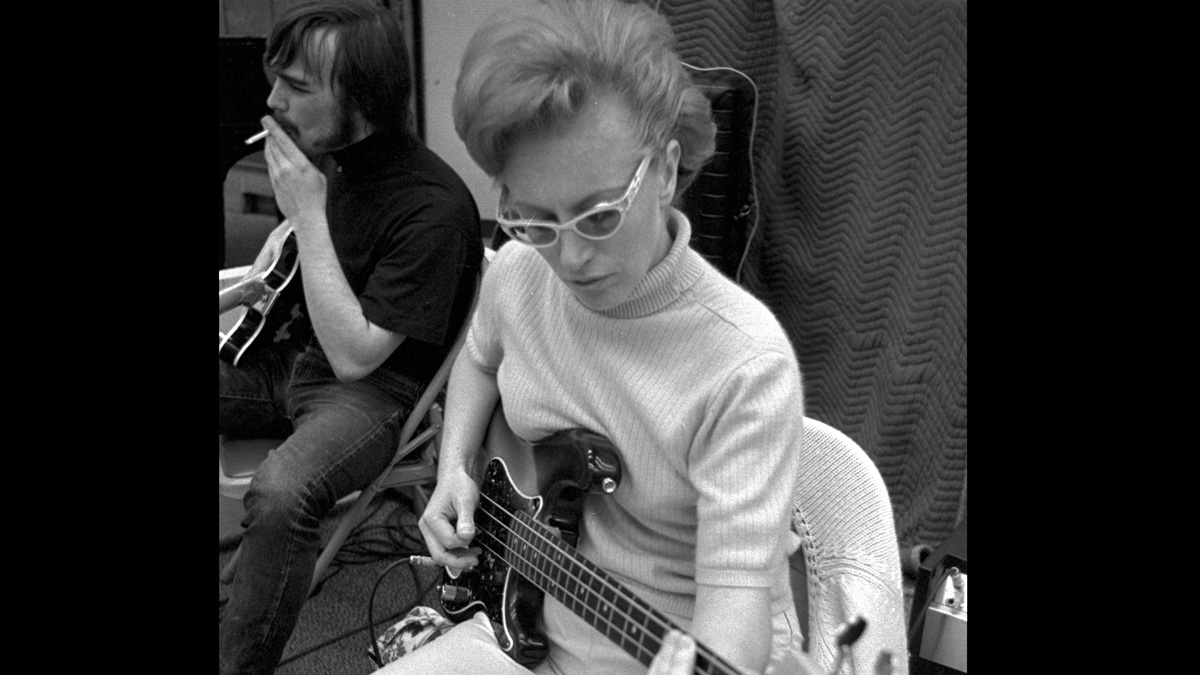Bass legend Carol Kaye: “98% of bass parts cut in Hollywood in the '60s were done with a pick on flatwound strings”
The studio ace and Wrecking Crew member talks bass sounds and some of her favorite sessions

Best of 2020: If anyone knows a thing or two about bass guitar, it’s Carol Kaye.
Kaye has played on an estimated 10,000 sessions in her more than 50-year career, and was also a member of the legendary Wrecking Crew. Her discography includes works with the Beach Boys, the Supremes, Frank Sinatra, Sam Cooke, Barbra Streisand and Simon & Garfunkel; she even played acoustic guitar on Ritchie Valens' La Bamba.
Kaye turned 85 years old on March 24, and to mark the occasion Ernie Ball sat down to interview the bassist – who was also one of the first musicians to ever demo the StingRay bass – to discuss her career.
Among the many pieces of wisdom Kaye dropped during the chat was to reveal the prominence of a particular bass sound and style on many legendary recordings.
“Most people don’t know that about 98% of things cut in Hollywood in the '60s were done with a pick on flatwound strings,” Kaye said.
There are bass players who rip people to death for playing with a pick. I say, hey, they don’t know the history
“There are bass players who rip people to death for playing with a pick. I say, hey, they don’t know the history. Most of those records that came out in the '60s were done with a pick on flatwounds. That was the sound. There was a piece of felt muting on there, too, to kill the natural overtones and undertones that could hurt your sound.
She continued, "They just don’t know the history. And it’s still a good sound. If you turn the knob, you’ve got Motown on one end and Boots [Nancy Sinatra’s These Boots Are Made for Walkin’] on the other end. You have to play it right: up on the upbeat, down on the downbeat, and play close to the neck. Never near the bridge.”
Get The Pick Newsletter
All the latest guitar news, interviews, lessons, reviews, deals and more, direct to your inbox!
As for some of her favorite sessions?
“I think one of my favorites is Feeling Alright with Joe Cocker,” Kaye said.
She also added that while she enjoyed some of her Beach Boys sessions, “Brian Wilson worked us to death on one tune for three hours.
"We were used to going in on a three-hour date and cutting four or five tunes, so it was different.”
Rich is the co-author of the best-selling Nöthin' But a Good Time: The Uncensored History of the '80s Hard Rock Explosion. He is also a recording and performing musician, and a former editor of Guitar World magazine and executive editor of Guitar Aficionado magazine. He has authored several additional books, among them Kurt Cobain: Montage of Heck, the companion to the documentary of the same name.
“I asked him to get me four bass strings because I only had a $29 guitar from Sears”: Bootsy Collins is one of the all-time bass greats, but he started out on guitar. Here’s the sole reason why he switched
“I got that bass for $50 off this coke dealer. I don’t know what Jaco did to it, but he totally messed up the insides!” How Cro-Mags’ Harley Flanagan went from buying a Jaco Pastorius bass on the street to fronting one of hardcore’s most influential bands











